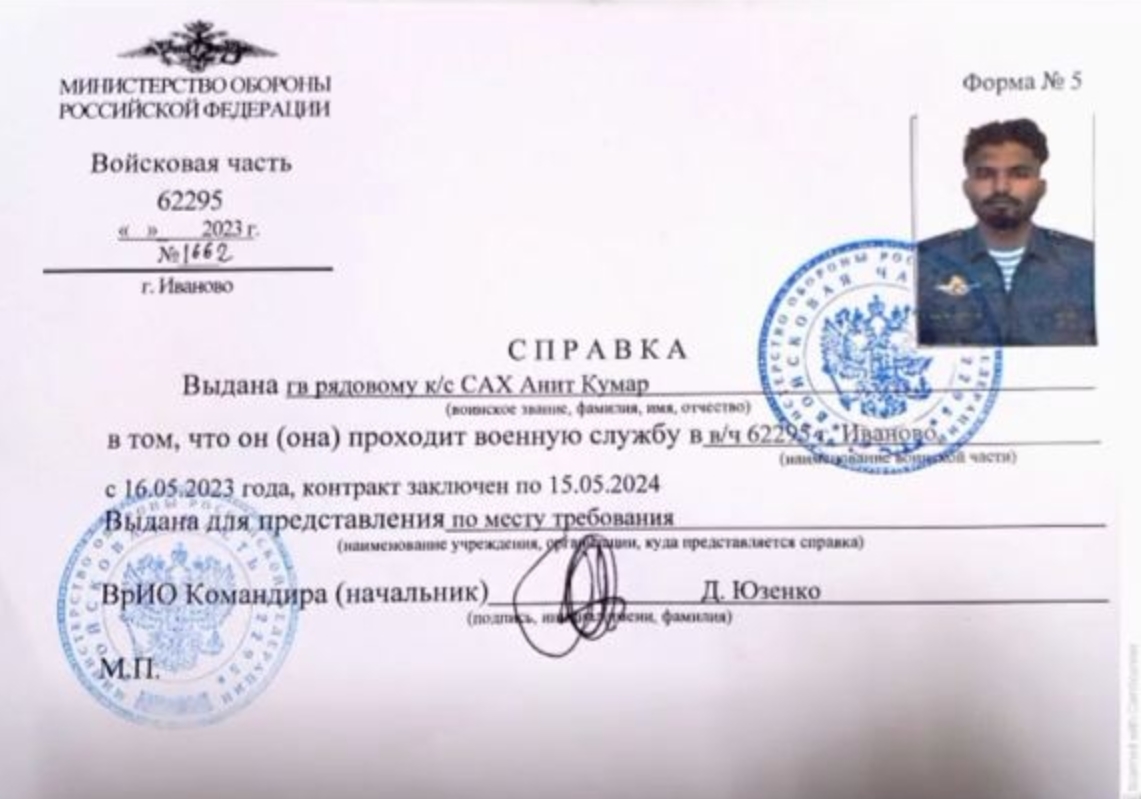
Russia is increasingly recruiting mercenaries from countries facing economic hardships to participate in the war against Ukraine.
Petro Yatsenko, a representative of the Coordination Headquarters for the Treatment of Prisoners of War, stated this at a press conference at the Ukrinform Media Center.
“After huge losses, Russia’s conscription campaign of forced mobilization and contracting with prisoners and mercenaries of the Wagner PMC is running out of options. Soldiers are needed on the front lines, so the aggressor country has intensified the flow of citizens from countries with difficult economic situations,” he said.
Yatsenko said that a large flow of mercenaries comes from Cuba because Russian agitators feel free there, so the number of people willing to join is growing.
In addition, there are many mercenaries from India, Africa, Nepal, and partly Serbia fighting on the battlefields of the Russian-Ukrainian war. There are also representatives from Latin America, Egypt, Jordan, and Iraq.

“One in a thousand is captured, and they are lucky because they saved their lives. …They can be convicted only on the fact that they are mercenaries, because it is illegal. But until such trials take place, they are held as prisoners of war. That is, they receive three full meals a day, humane treatment, and medical care, just like prisoners of the Russian Federation,” Yatsenko emphasized.
Foreign mercenaries will be convicted by a Ukrainian court, but will not be subject to exchange – Russia does not need them. Their release will depend on the process of negotiations with their countries of origin.
The press conference was attended by the prisoners of war: five Nepalese citizens, as well as citizens of Cuba, Sierra Leone, and Somalia.
One of the captured Nepalese said that there were 17 Nepalese, two from Cameroon and five Cubans in his unit. There were no Russians, they held leadership positions.
According to most of the mercenaries, they were assured that they would work in logistics and field hospitals, so they did not expect to be sent to the front line. In addition, they do not know the language and are not trained to fight.

The mercenaries say they were contracted for one year and offered an average salary of $2,000 per month. They said they joined the war because of the difficult economic situation.
Some of them came on tourist visas and believed they would work in construction, while others were promised civilian jobs in Russia.
People learned about the opportunity to earn money through posters, particularly in Cuba, as well as on social media: TikTok and Facebook.
Yatsenko noted that the Russian Federation offers mercenaries a lot of money, “but in fact they are very cheap, because there is a nuance: the life of such an infantryman lasts not even days, but hours.”
Militarnyi previously reported that the Nepalese government asked Russia to send back hundreds of Nepalese citizens who were illegally recruited by Russia to participate in the Russian-Ukrainian war.
The Nepalese government has also asked Russia to repatriate the bodies of those who died. Nepal’s Foreign Minister Narayan Prakash Saud said that the Russian army had recruited more than 200 Nepalese citizens to fight in Ukraine, and at least 14 of them were killed.

Militarnyi also reported that Police in Nepal detained ten people on suspicion of illegally recruiting the country’s residents into the Russian military.
The detainees illegally charged each person up to $9,000 and sent them to Russia on “tourist visas,” mainly through the UAE.
They were then recruited into the Russian Army. In October 2023, Ukrainian troops captured a Russian mercenary from Nepal in the Avdiivka direction.
In the same month, the New York Times reported on dozens of Nepalese who signed contracts with the Russian army and went to war in Ukraine.

Many of them did so because of low wages and unemployment in the country. The Nepalese government does not allow its citizens to serve in foreign armies, except for the armed forces of India and the United Kingdom.
In addition to representatives of African and Asian nations, Europeans are also fighting on the side of the Russians. For example, in January 2024, it was reported that Dejan Beric, a Serbian mercenary who served in the Russian invasion troops, complained about chauvinism and inhuman treatment by the Russian military.
According to Beric, the command of the 119th Guards Airborne Regiment in Ryazan has repeatedly displayed chauvinism and outright racism towards Serbs, calling them “gypsies,” asking why they came, and refusing them medical care.
Підтримати нас можна через:
Приват: 5169 3351 0164 7408 PayPal - [email protected] Стати нашим патроном за лінком ⬇
Subscribe to our newsletter
or on ours Telegram
Thank you!!
You are subscribed to our newsletter